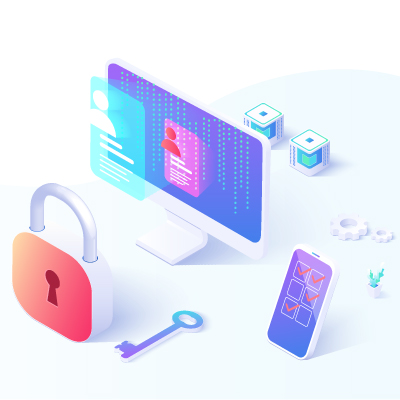You May Not Think You’re Popular, but Your Data Certainly Is

Data is extremely important in the way that most businesses conduct themselves. This results in other people wanting that information, too. Today’s blog will look at how seemingly everyone online is out for your data.
Businesses Want Your Data…
Companies and hackers are both intensely interested in acquiring your personal data, albeit for vastly different reasons.
Companies collect data to understand consumer behavior, improve products, tailor marketing strategies, and enhance customer experience. This data can include anything from browsing and purchase histories to more sensitive information like your location. With the rise of big data and advanced analytics, companies can create detailed profiles of individuals, enabling highly targeted advertising and personalized services.
This level of personalization can improve customer satisfaction but also raises significant privacy concerns.
…and Cybercriminals Do, Too
Cybercriminals pursue your data with malicious intent. Their primary goal is often financial gain, achieved by stealing sensitive information such as credit card numbers, Social Security numbers, and login credentials.
This data can then be sold on the dark web, used to commit fraud, or, more often, held for ransom in exchange for money. Hackers may target corporate data, seeking to steal confidential business information that can be used as leverage for other shady deals. As time goes on, hackers become increasingly sophisticated, using phishing and malware to get what they want out of people and organizations.
There are Some Similarities
Both companies and hackers exploit the vast digital footprint that individuals leave behind. Companies leverage this data with your consent, often obtained through lengthy and complex terms of service agreements that many users do not fully read or understand. Users often unknowingly allow companies to track their online activities across various platforms by agreeing to these terms. This data aggregation can lead to invasive tracking and profiling, which threatens individual privacy and creates a sense of constant surveillance.
On the other hand, hackers do not seek consent and use illicit and often illegal means to access your data. They take advantage of software vulnerabilities and use social engineering (such as phishing) to deceive individuals and breach websites, files, and databases. Once inside a system, hackers can install malware that can go undetected for long periods, quietly siphoning off valuable information. These breaches often go public only after significant damage has been done, undermining trust in digital systems and services.
You Need to Consider Your Data Privacy
There is a big push for data protection and cybersecurity to confront the myriad of threats out there, whether legitimate or illicit. For companies, this means implementing security software and strategies and being transparent about data usage. For individuals, it involves being vigilant about the information shared online, using strong, unique passwords, and being knowledgeable about phishing attempts.
If your organization needs help with its data security and privacy, the knowledgeable IT professionals at White Mountain IT Services can be a great resource. To learn more, contact us today at (603) 889-0800.


